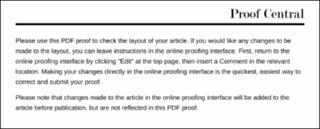The 3rd ESTRO-EFOMP core curriculum for medical physics experts in radiotherapy
Garibaldi, Cristina; Essers, Marion; Heijmen, Ben; Bertholet, Jenny; Koutsouveli, Efi; Schwarz, Marco; Bert, Christoph; Bodale, Marin; Casares-Magaz, Oscar; Gerskevitch, Eduard; Koniarova, Irena; Korreman, Stine; Lisbona, Albert; Lopez Medina, Antonio; Maas, Ad; Moeckli, Raphaël; Moore, Margaret; Petrovic, Borislava; Piotrowski, Tomasz; Poli, Esmeralda; Prezado, Yolanda; Reynaert, Nick; Redalen, Kathrine; Stylianou Markidou, Erato; Verellen, Dirk; Jornet, Nuria; Clark, Catharine H.
Peer reviewed, Journal article
Accepted version
Permanent lenke
https://hdl.handle.net/11250/3055956Utgivelsesdato
2022Metadata
Vis full innførselSamlinger
- Institutt for fysikk [2695]
- Publikasjoner fra CRIStin - NTNU [38127]
Sammendrag
Purpose
To update the 2011 ESTRO-EFOMP core curriculum (CC) for education and training of medical physics experts (MPE)s working in radiotherapy (RT), in line with recent EU guidelines, and to provide a framework for European countries to develop their own curriculum.
Material and methods
Since September 2019, 27 European MPEs representing ESTRO, EFOMP and National Societies, with expertise covering all subfields of RT physics, have revised the CC for recent advances in RT. The ESTRO and EFOMP Education Councils, all European National Societies and international stakeholders have been involved in the revision process.
Results
A 4-year training period has been proposed, with a total of 240 ECTS (European Credit Transfer and Accumulation System).
Training entrance levels have been defined ensuring the necessary physics and mathematics background. The concept of competency-based education has been reinforced by introducing the CanMEDS role framework. The updated CC includes (ablative) stereotactic-, MR-guided- and adaptive RT, particle therapy, advanced automation, complex quantitative data analysis (big data/artificial intelligence), use of biological images, and personalized treatments. Due to the continuously increasing RT complexity, more emphasis has been given to quality management. Clear requirements for a research project ensure a proper preparation of MPE residents for their central role in science and innovation in RT.
Conclusion
This updated, 3rd edition of the CC provides an MPE training framework for safe and effective practice of modern RT, while acknowledging the significant efforts needed in some countries to reach this level. The CC can contribute to further harmonization of MPE training in Europe.
